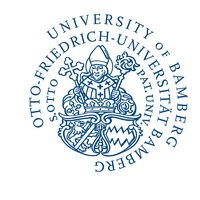Zusammenfassung
- Was Workshop — Interdisciplinary Summer School: German Heritage in Eastern Europe. Comparing Narratives, Finding New Perspectives
- Wann to (Europe/Berlin / UTC200)
- Wo Ravila Manor and Tallinn , Estonia
- Anmeldung bis 01.06.2019
- URL https://www.uni-bamberg.de/kdwt/arbeitsbereiche/denkmalpflege/projekte/international-summer-school-german-heritage-in-eastern-europe/
- Termin herunterladen iCal Datei herunterladen
Beschreibung
The interdisciplinary summer school wants to approach these questions in a historical perspective with a focus (but not limited to) the Baltic German heritage of art and architecture in what is today Estonia. The aim is to bring different perspectives on heritage and history together, by inviting young researchers in humanities as well as professional experts and practitioners (conservationists, architects) and local stakeholders (e.g. monument-owners) to talk about their different perspectives on (German) heritage and exchange ideas on narrative construction and identity in art history and heritage studies. By doing this we want to question some of the existing narratives and possibly establish more multi-perspective ones.
Weitere Informationen:
https://www.uni-bamberg.de/fileadmin/uni/fakultaeten/ggeo_faecher/arch_bau_denkmal/KDWT/Bilder/German_heriage_Estonia_CFP.pdf

